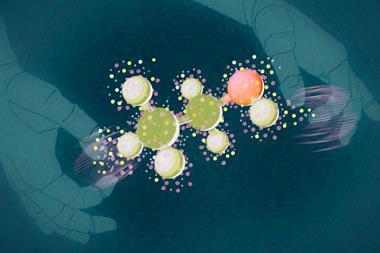Readers continue to debate Tomáš Hudlický’s Angewandte Chemie article, and wax lyrical about water and waste
Diverse opinions
Amid the debate about diversity in science, it is important not to let fundamental scientific principles slide. Philip Ball (Chemistry World, July 2020, p33) criticises Tomáš Hudlický’s assertion that diversity harms organic chemistry, while Ball and others have accused Alessandro Strumia of cherry-picking data to support his claim that encouraging more women into physics reduces the quality of research. However, your correspondent John Boulton comments that ‘Cherries … are there to be picked, and – who knows? – there may be a nugget of good sense in them’ (Chemistry World, August 2020, p4).
This is the very opposite of good science, and something that, as a co-author of Cochrane reviews of pain treatments, I have to guard against. I don’t believe Chemistry World readers need any lessons in this.
Let us recap. Hudlický states as a fact, without justification, that increased diversity means that the most meritorious candidates are discriminated against. He does not attempt to define ‘most meritorious’ but, even according to his arguments, it would be the not-quite-so meritorious who would lose out. According to Hudlický, the science produced under such circumstances would suffer. However, there is research which suggests the opposite.
Strumia presented himself as a victim of discrimination because a woman who he considered less meritorious got a job he applied for. He announced this publicly at a meeting attended by the woman in question. In support of his claim, he adduced his greater citation rate, despite this being a notoriously unreliable indicator of merit (one-third of his citations came from a single paper with nearly 3000 authors!). He produced an analysis purporting to show that men were discriminated against in physics. This has not been replicated. His arguments were refuted in an open letter from many high-energy physicists.
Hudlický and Strumia’s complaints beg the question of what constitutes merit, their assumptions pointing to a rather narrow definition. However, the paths to successful science are many and diverse.
Les Hearn MRSC
John Boulton’s letter criticising the reporting of opinions expressed in Angewandte Chemie really does expose a problem in the chemical sciences. That senior professors, contributors and even the journal board members should complain about opinions expressed in a journal that they have encouraged to drift away from hard science is pretty poor. There are plenty of other opportunities to voice opinions and the current generation of senior chemists has done the community no favours by allowing this change of emphasis. To then complain because they disagree with the views expressed really does take the biscuit.
Mike Green FRSC
Newcastle, UK
Recycling proficiency
In spite of our efforts as scientists to improve the world, we are each of us at serious risk of leaving it in a much worse state when we leave it, as it was when we entered it.
I have always tended to push things like waste disposal into the back of my mind, having much more exciting projects to work on. However, as I enter my 10th decade, I am increasingly appalled at seeing on television the extent to which our plastic waste is being dumped into the sea, or into cash-strapped countries.
I used plastics extensively in the development of medical devices during my career as a project manager. Yet now, I often cannot decide which plastic items of household waste should go into the recycling bin and which items will be a nuisance to the recyclers.
Why cannot plastic manufacturers insert a small amount of a coloured chemical into those plastics that can be recycled? A good R&D project for someone?
Alan Peacegood CChem FRSC
Hughenden Valley, UK
Assailed by essays
I was fascinated by your article about the weirdness of water (Chemistry World, April 2020, p26). When I started my chemistry degree in St Catherine’s Society at the University of Oxford in 1956, we were lucky enough to have Frederick Mason Brewer as our inorganic tutor. He set our very first weekly essay on the subject of water. Just that. I think he said something like ‘go to the library and find out as much as you can – I want at least four pages’.
The subjects for the following two weeks were ‘cations of the non-metals’ and ‘anions of the metals’. A bit startling at the time but actually a great start to being able to show the examiners ‘a general knowledge of inorganic, organic and physical chemistry’ in our final exams. That was the complete published curriculum at the time!
Freddie Brewer’s practical approach to chemistry served me well for many years – despite his lecture series on the less common elements folding in the fourth week when only five students turned up out of the then total chemistry school of about 140! He is very fondly remembered even after 60 years.
Douglas Adams MRSC
Swansea, UK
Go against the flow
I have just caught up with ‘Home truths’ (Chemistry World, March 2020, p72), in which Lauren Taylor castigates laboratory users for leaving condensers running cooling water all night. There is another aspect of cooling which is also important.
Earlier in my career I worked for a water company that was trying to promote the conservation of water in industry in order to reduce demand. A colleague visited a motor assembly plant that used tap water to cool welding machines, running the water to waste. The temperature of the outflow was the same as the inflow. The immediate response was to reduce the flow such that there was at least some temperature rise through the machines.
The company concerned, realising the potential cost savings, then rigged up an air cooling system with domestic radiators and fans. The principles were promoted with other industrial water users.
The lessons apply to any system that uses water to cool equipment, including condensers. There is a balance between flow rate and effective cooling that the user has to determine and temperature monitoring of inlet and outlet may be needed. However, water is still a precious resource requiring conservation and there are cost savings to be made – bearing in mind that effluent treatment charges are often based on water consumption.
Brian Waters FRSC
Leicester, UK
Chemistry World welcomes letters, which should be concise (normally fewer than 300 words) and timely. Those selected for publication are subject to editing for clarity and length. Letters should be marked ‘for publication’ and sent to chemistryworld@rsc.org
We do not routinely acknowledge letters.












No comments yet